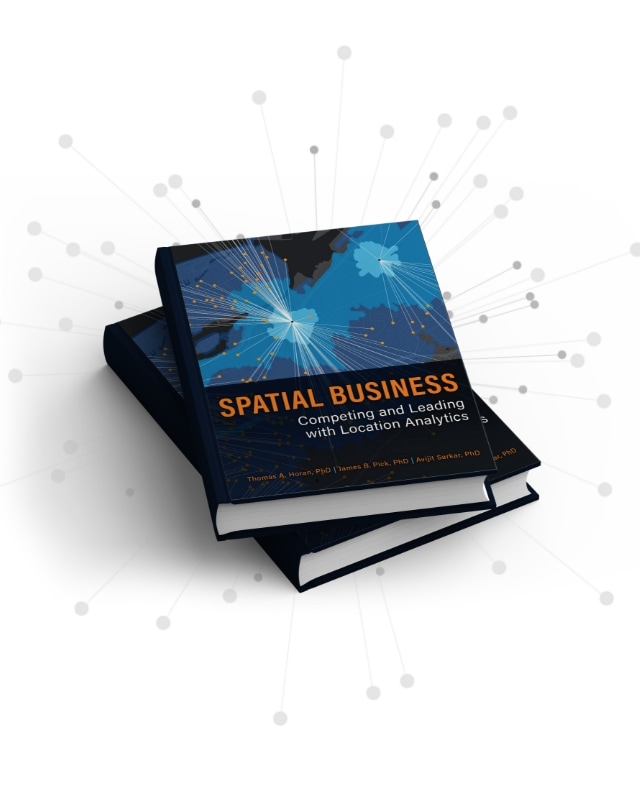
Achieving Success with Location Analytics
This book is intended to inform business professionals as well as business students about this new world of location intelligence and how to utilize this intelligence to achieve business success. It also aims to enlighten geographic information systems (GIS) professionals and students about how location analytics can be considered and utilized within business functions and strategies.

Who the Book is For
- Business Professionals: Learn how to execute location-based strategies and applications that can positively impact business growth and performance. Discover ways to deploy location analytics that can have a demonstrable impact across a broad range of business functions.
- Business Educators: Learn how to integrate location analytics into business education, including analytics and data science, marketing, operations management, supply chain, and corporate social responsibility courses. Gain skills for utilizing location analytics in research and professional activities.
- Business Students: Learn how this exciting new form of business analytics is being used across a broad range of industries. Gain the skills needed for a successful career in this growing field.

Spatial Business Hub for Professionals, Educators, and Students
The Spatial Business Hub is intended to provide a wealth of learning materials and resources for business and GIS professionals, educators, and students who would like to engage in the realm of location analytics in business. Resources include:
- Fundamental spatial business concepts
- Important location analytical principles
- Case studies across different business functions
- Spatial business course design
- Book chapter summaries
- GIS lessons

Implications for Practice
Drawing upon a wide range of real-work examples, Spatial Business provides a set of action steps that can be taken to maximize
the business impact of spatial strategies.
Fundamentals of
spatial business
Achieving Business &
Societal Value
Toward Spatial
Excellence


